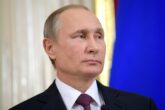January 03, 2019
A Question of Statecraft
Any Western policymaker working in the field of national security over the past decade has had to grapple with the same disheartening reality: the structures and processes that governments created decades ago to analyze threats and coordinate policy responses are ill-equipped to cope with today’s fast changing geostrategic landscape. These days governments must play what international relations scholar Joe Nye calls “three-dimensional chess,” requiring policymakers to address military, economic, and transnational challenges simultaneously. Whether it is Chinese anti-access/area-denial strategies and capabilities in the South China Sea or the Russian use of energy and cyber-attacks as instruments of coercion, asymmetric warfare is presenting unique challenges not only to national security professionals but also to government ministries, which were designed for a different era.
National governments have responded to these changes by developing new strategies, policies, and tools. The homepages of Western foreign offices and ministries of defense are awash in white papers and national security strategies that outline how the world of foreign policy is evolving and why a pan-governmental approach that draws from the respective strengths of multiple government agencies is needed. Less has been done, however, in regards to statecraft. National security professionals know full well that even the best, most innovative strategies and policies will fail if they aren’t accompanied by a process that enables them to be realized. Yet statecraft—the machinery that ensures that national governments can efficiently and effectively execute policy—rarely garners as much attention.
Read the full article in Berlin Policy Journal.
More from CNAS
-
The Eurasian Century: Hot Wars, Cold Wars, and the Making of the Modern World with Hal Brands
For more than 100 years, the continent of Eurasia has played a central role in global geopolitics. In the 20th century, numerous authoritarian powers from Germany under Kaiser...
By Andrea Kendall-Taylor, Jim Townsend & Hal Brands
-
Putin’s Fight Won’t End With Ukraine
In an essay for Foreign Affairs, titled “Putin’s Point of No Return,” Andrea Kendall-Taylor, senior fellow and director of the Transatlantic Security Program at the Center for...
By Andrea Kendall-Taylor
-
Trump’s Callout of Russia’s Vladimir Putin Is Raising Eyebrows
President Trump is threatening sanctions and tariffs on Russia if Putin doesn't reach an agreement to end the war in Ukraine. Some are surprised, considering Trump's affinity ...
By Andrea Kendall-Taylor
-
In Russia's Perceived War with the West, Arms Control is Collateral Damage
Russia seemingly perceives previously established arms control agreements as elements of the broader Western-dominated political and security order that it aims to overturn....
By Nicholas Lokker




